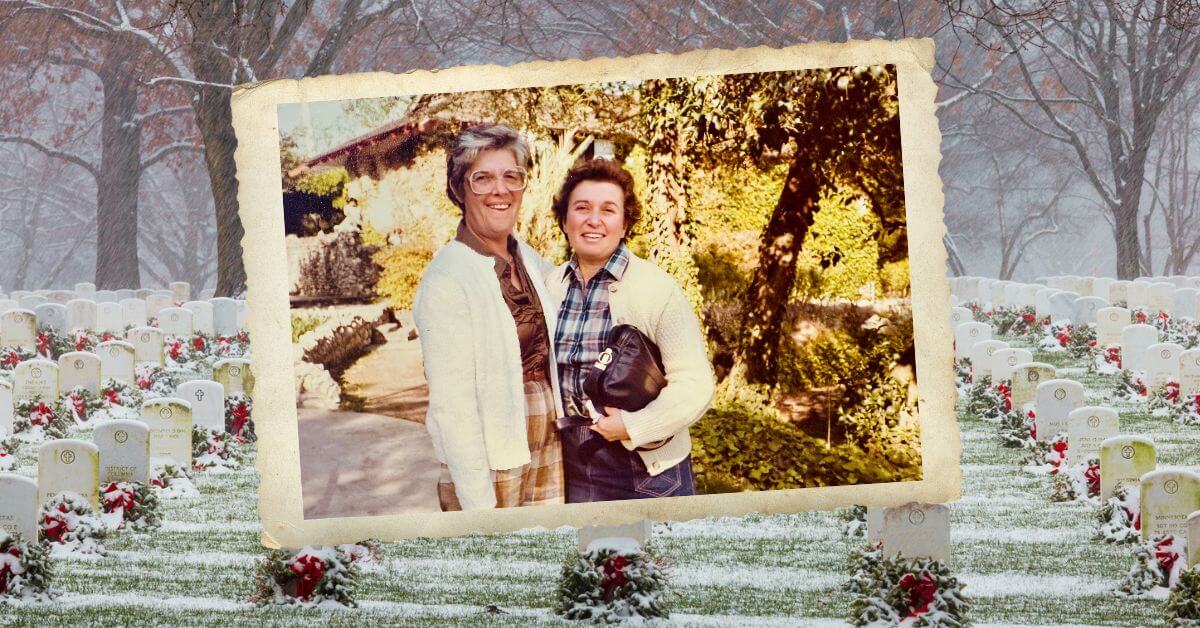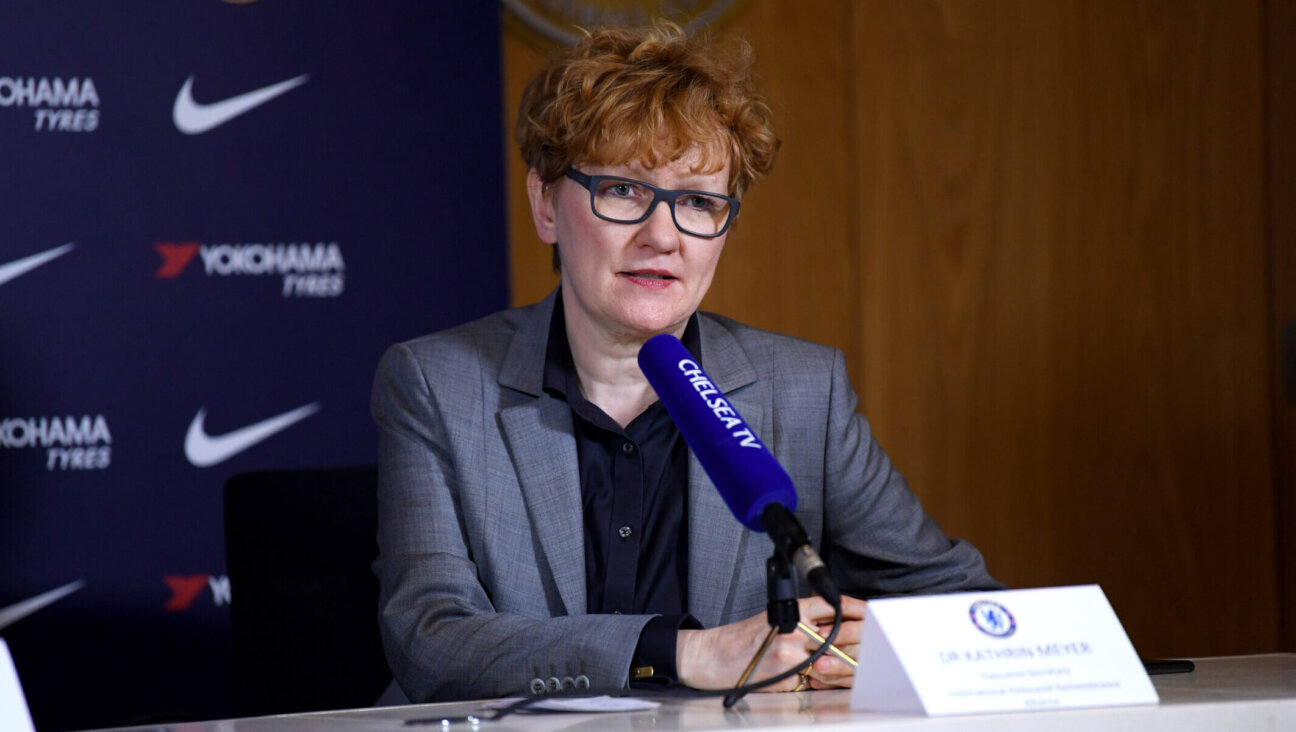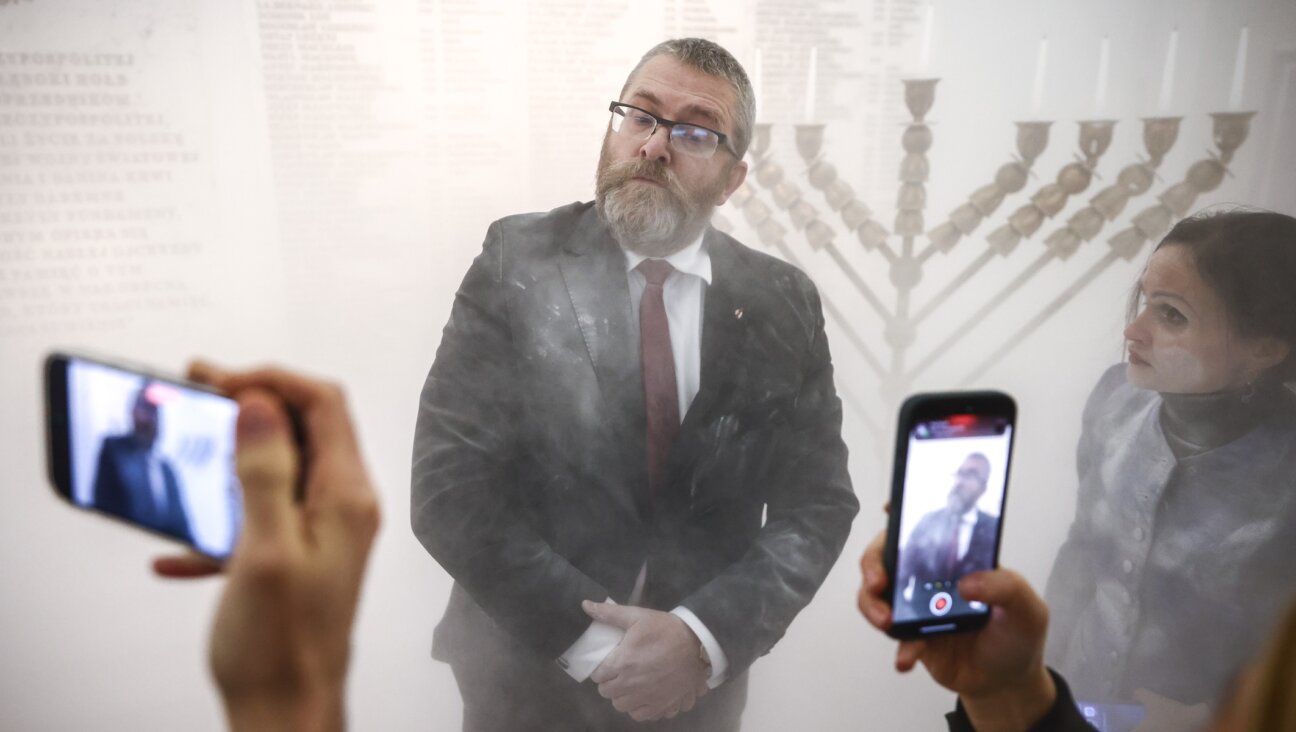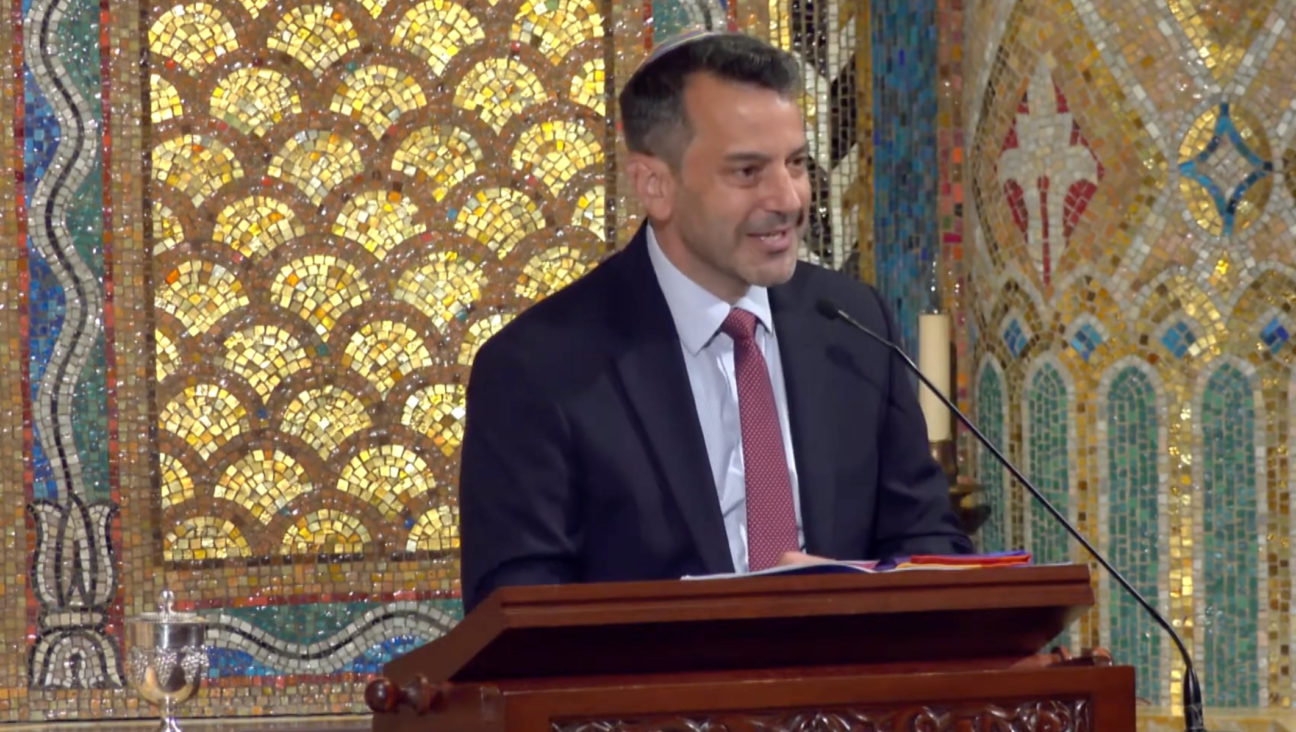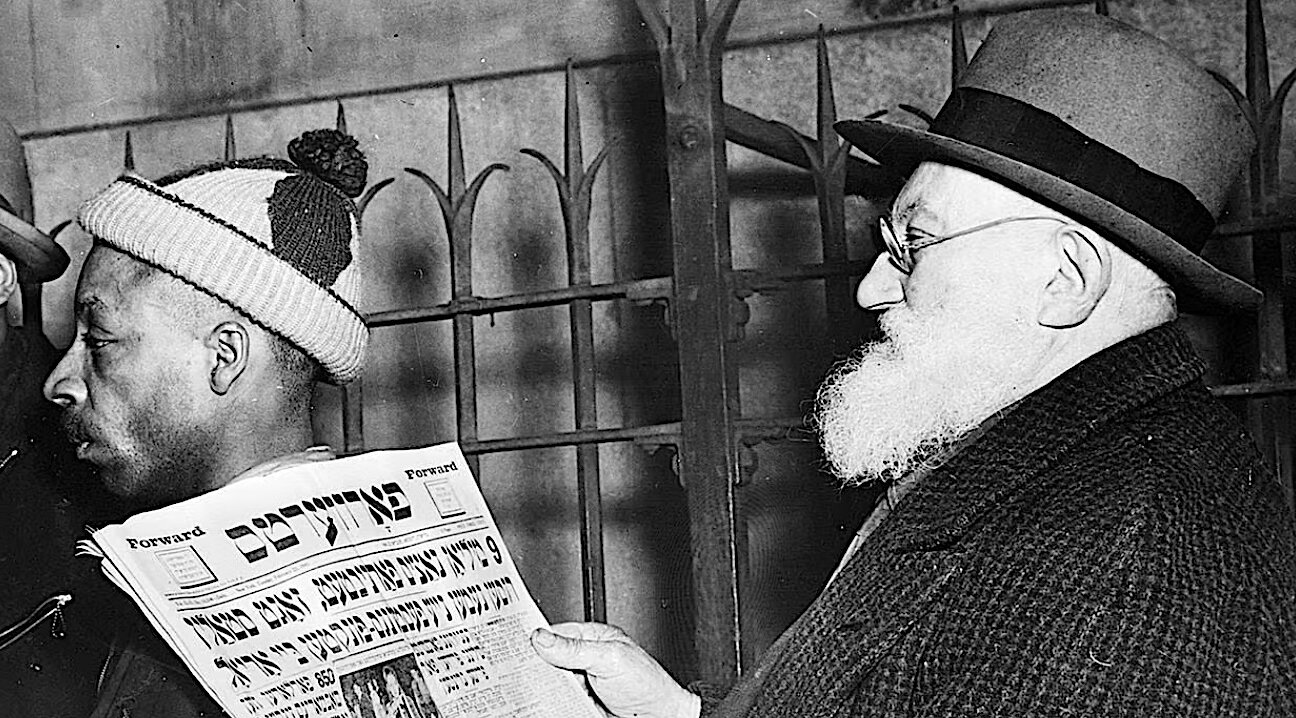Bringing Boy-Meets-Girl Back to Modern Orthodox Dating
hananya Weissman is sick of dating shtick.
For the past year, the 25-year-old Yeshiva University rabbinical student has been gaining faithful adherents to End the Madness, his engine for changing the Modern Orthodox dating culture.
When it comes to dating, Weissman and his supporters want it to become more acceptable for young singles to meet on their own. But they’re also tired of the labeling that goes on when arranging blind dates. They don’t think it should matter what kind of yarmulke a boy wears, who his teachers are in yeshiva, what kind of tablecloth the girl’s mother uses on the Sabbath — or whether the girl wears denim skirts, for that matter. Yet such questions are becoming increasingly common as the Modern Orthodox community, in its historic drift rightward, reverts to traditional matchmaking practices that value a family’s background and piety over modern notions like, well, romance.
Weissman says such inquiries encourage superficiality because they do “not deal with the core values of a person.”
“I’m not saying shadchanim [matchmakers] are evil,” added Weissman, who himself has been set up on many blind dates. “It just sometimes gets into asking ridiculous questions.”
It is just this sort of labeling that Weissman is trying to end with End the Madness, which has been steadily gaining steam since its first event last February. On February 28, 100 members and supporters are set to gather for a symposium in Brooklyn at the Young Israel of Flatbush.
“We’re trying to get a large number of people to speak out and say that things need to change,” said Weissman, who has written op-eds on the topic for local Jewish newspapers. “The symposiums are powerful because we have people discussing things in an open and candid manner.”
Weissman believes the key to change, at this point, is to make the community aware of the problem. And that’s what this week’s symposium, the group’s fourth, aims to do. The event, which is “open to singles and married people of all ages and superficial labels,” according to the Web site, will feature rabbis, educators and communal leaders; issues addressed include making dating more fun, coed socializing and parental involvement. A mixer with refreshments will follow the symposium.
“As a friend of mine said, ‘We can expect to see an evolution, not a revolution,’” Weissman said. “I think the culture has started to change, but it will not be an overnight thing.”
While socializing and dating are oft-discussed topics in the Orthodox community, End the Madness presents the issue from an unusual perspective. Parts of the Modern Orthodox world have experienced a rightward shift in recent years, and Weissman and his peers are, in essence, caught between two worlds.
Coed mixers, lectures and social parties are now taboo in some Modern Orthodox circles. This narrowing of appropriate methods for meeting has forced singles to rely on third parties to arrange blind dates. For End the Madness adherents, using a shadchan — who were once utilized mainly in fervently Orthodox circles — creates an atmosphere of stereotyping that they beleive is not consonant with the Modern Orthodox mentality.
Weissman said that socializing must be encouraged once again, even though this is clearly not a crowd that will hang out in bars or clubs.
“I think the whole community has to become involved in providing appropriate and dignified ways for young men and women to meet,” said Rivka Blau — a Jewish educator and the wife of Rabbi Yosef Blau, the spiritual adviser for students at Yeshiva University — who spoke at an End the Madness symposium in April.
End the Madness adherents, for example, bemoan the recent trend at Modern Orthodox weddings of seating single men and women at separate tables.
“What guy is going to go over to a table full of girls and start talking?” said Weissman. “It’s sort of like married people are saying, ‘Look at us, we’re so happy, the rest of you are screwed.’ They have to realize there are consequences to their actions.”
In Weissman’s view, communal leaders need to step up and insist that practices such as separate seating for singles be discarded. Already, numerous rabbis, such as Rabbi Moshe Tendler, a pulpit rabbi and rosh yeshiva at Y.U., have actively encouraged coed socializing at social events, weddings and at people’s homes for Shabbat meals.
“The shift in the Modern Orthodox community has robbed singles of natural ways of meeting each other,” said Rabbi Shmuel Goldin of the Orthodox Congregation Ahavath Torah in Englewood, N.J. Goldin has written about singles and dating, and recently brought the issue to the attention of the Orthodox Caucus, a think tank that addresses issues not widely examined.
Posted on EndtheMadness.org is Weissman’s own dating Ten Commandments, or “The Covenant,” to which people can attach their names. To date, more than 450 people, mostly New Yorkers, but some who hail from as far away as Israel and South Africa, have signed on, agreeing to such “principles” as: “It is not bittul Torah [a waste of Torah and time] to date. Period”; “It is intrusive and degrading to ask petty questions about potential dates,” and “Social pressure in all its forms… is morally wrong.”
“I agree with pretty much all the points in the covenant,” said Zion Orent, a 26-year-old Web designer living in Washington Heights who signed onto the covenant and attends most of the End the Madness events. Nevertheless, he said, he’s “personally turned off when people speak in strong, unilateral tones.”
The Web site also boasts a bulletin board for people to discuss dating ideas, pass on announcements of singles events or vent about the woes of dating and shidduchim. For example, a recent discussion initiated by a visitor who identified himself as “Dan” questioned whether attending too many singles events leads to overexposure, and another thread debated the concept of a bashert, or soul mate. The board also features more romance-oriented exchanges, such as when it’s appropriate to buy a girl flowers or to verbalize terms of endearment like “I love you.” There are also numerous postings on the struggle with falling in love while being shomer negiah, a practice of the Orthodox not to touch the opposite gender before marriage.
Weissman runs something of a one-man show, supporting End the Madness out of his own pocket and with modest event fees.
A year after End the Madness’s first event last February, Weissman says he has an easier time getting speakers, who now often approach him, and many more singles and communal leaders are contacting him to discuss the subject. He and other supporters believe, however, that the main success of End the Madness is the buzz it has generated among Modern Orthodox singles and the reassurance it has given them that they are not alone.
“There’s a lot of pressure on singles,” said Orent, who now maintains the End the Madness Web site. “A lot of people are hearing about [End the Madness], and it’s voicing things that they aren’t willing to say by themselves.”
For additional information about the February 28 End the Madness Symposium, please visit www.endthemadness.org.
A message from our Publisher & CEO Rachel Fishman Feddersen

I hope you appreciated this article. Before you go, I’d like to ask you to please support the Forward’s award-winning, nonprofit journalism so that we can be prepared for whatever news 2025 brings.
At a time when other newsrooms are closing or cutting back, the Forward has removed its paywall and invested additional resources to report on the ground from Israel and around the U.S. on the impact of the war, rising antisemitism and polarized discourse.
Readers like you make it all possible. Support our work by becoming a Forward Member and connect with our journalism and your community.
— Rachel Fishman Feddersen, Publisher and CEO









